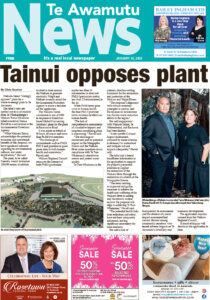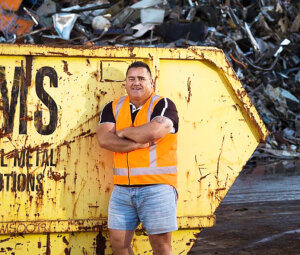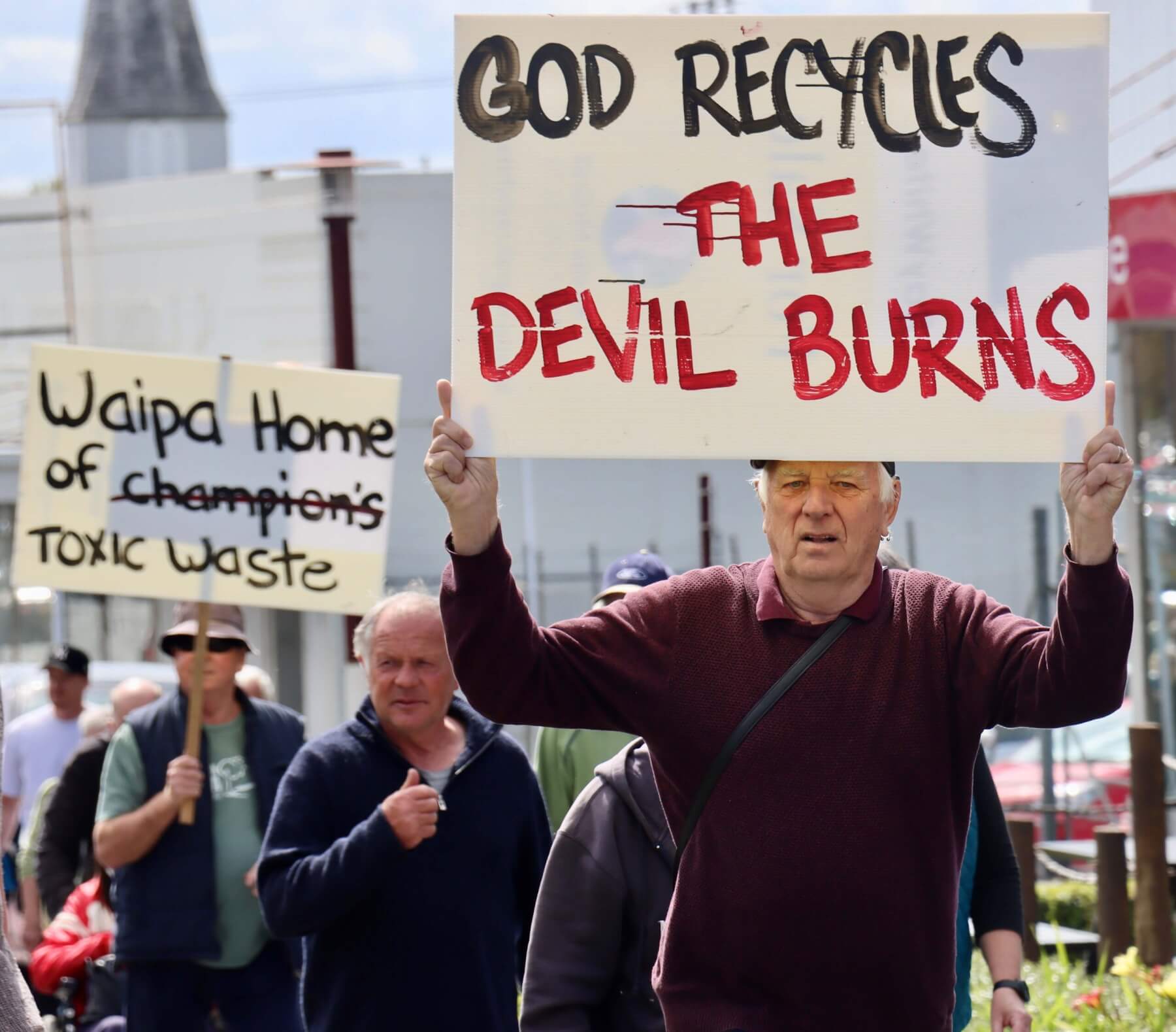Waikato-Tainui “strongly opposes” plans for a waste-to-energy plant in Te Awamutu.

Te Awamutu News January 16 2025
The tribe’s view are spelled out in a submission from Te Whakakitenga o Waikato Tumu Whakarae (chief executive) Donna Flavell in a submission to the Environmental Protection Agency.
“While Waikato-Tainui acknowledges the potential economic and operational benefits of this proposal, we have significant concerns regarding its environmental, cultural, and social implications,” she said.
The plant, to be called Paewira, would incinerate 150,000 tonnes of rubbish trucked in from around the Waikato to generate electricity. Waipā and Waikato councils asked the Environmental Protection Agency to make a decision on the application.
The Waikato-Tainui submission is one of 1350 in response to Hamilton-based Global Contracting Solutions’ plans for the plant in Racecourse Road.
It was made on behalf of 33 hapū, 68 marae and more than 94,000 iwi members.
“The discharge of contaminants such as PM10, PM2.5 and greenhouse gases poses risks to both human health and ecosystems,” Flavell said.
Waikato Regional Council measures the amount of both PM10 (particulate matter less than 10 micrometres in size) and PM2.5 (particulate matter less than 2.5 micrometres) in the air.
While PM10 levels pose a risk to human health, the finer PM2.5 provides better evidence of effects on human health.

An aerial view of Paewira’s proposed ‘footprint’ in Racecourse Rd. Photo: Supplied.
“The lack of comprehensive assessments of cumulative impacts and long-term monitoring plans is concerning,” Flavell said.
“The discharge of stormwater and its potential impact on the Mangapiko Stream and the Waikato River raises questions about compliance with Te Ture Whaimana’s objective to restore and protect water quality.

Craig Tuhoro says the proposed plant will be good for the environment and the community.
Te Ture Whaimana is the primary direction-setting document for the restoration and protection of the Waikato and Waipā Rivers.
“The proposal’s alignment with circular economy principles is unclear, and the reliance on incineration may hinder waste reduction efforts in the region.”
She said engagement with Waikato-Tainui, Te Nehenehenui, and Raukawa had been limited.

An artist’s impression of Paewira. Photo: Supplied
“A site-specific Cultural Impact Assessment, prepared by mana whenua, is necessary to understand and mitigate cultural impacts adequately,” Flavell said.
The tribe said it found insufficient information in the application to support the project’s purported intention to support the restoration of the Waikato River through the restoration of a stretch of the Mangapiko Stream.
“The detail relating to improved mitigation measures to achieve the health and wellbeing of the Waikato River is lacking and therefore is unclear on how the proposal will align to achieving Te Ture Whaimana,” Flavell said.
“The potential health risks from emissions and odour have not been adequately addressed, leaving significant uncertainty for local residents.
She said a lack of transparency in assessments and the absence of a social impact assessment had created distrust among community members, who feared adverse impacts on Te Awamutu’s liveability and economic development.
The application requires consent from the Waikato Regional Council.
A board of inquiry will decide on the application in June.
See: Power from waste – recycling plant would be a first
See: Energy plant in councils’ hands
See: Public gets a say in waste plan
See: Waste to energy issue heats up
See: Waste to energy: government’s call
See: Waste to energy board appointed

A digital mock-up of Paewira Recycle Plant feature image – supplied

A marcher makes his opinion about the proposed waste to energy plant clear. Photo: Jeremy Smith








